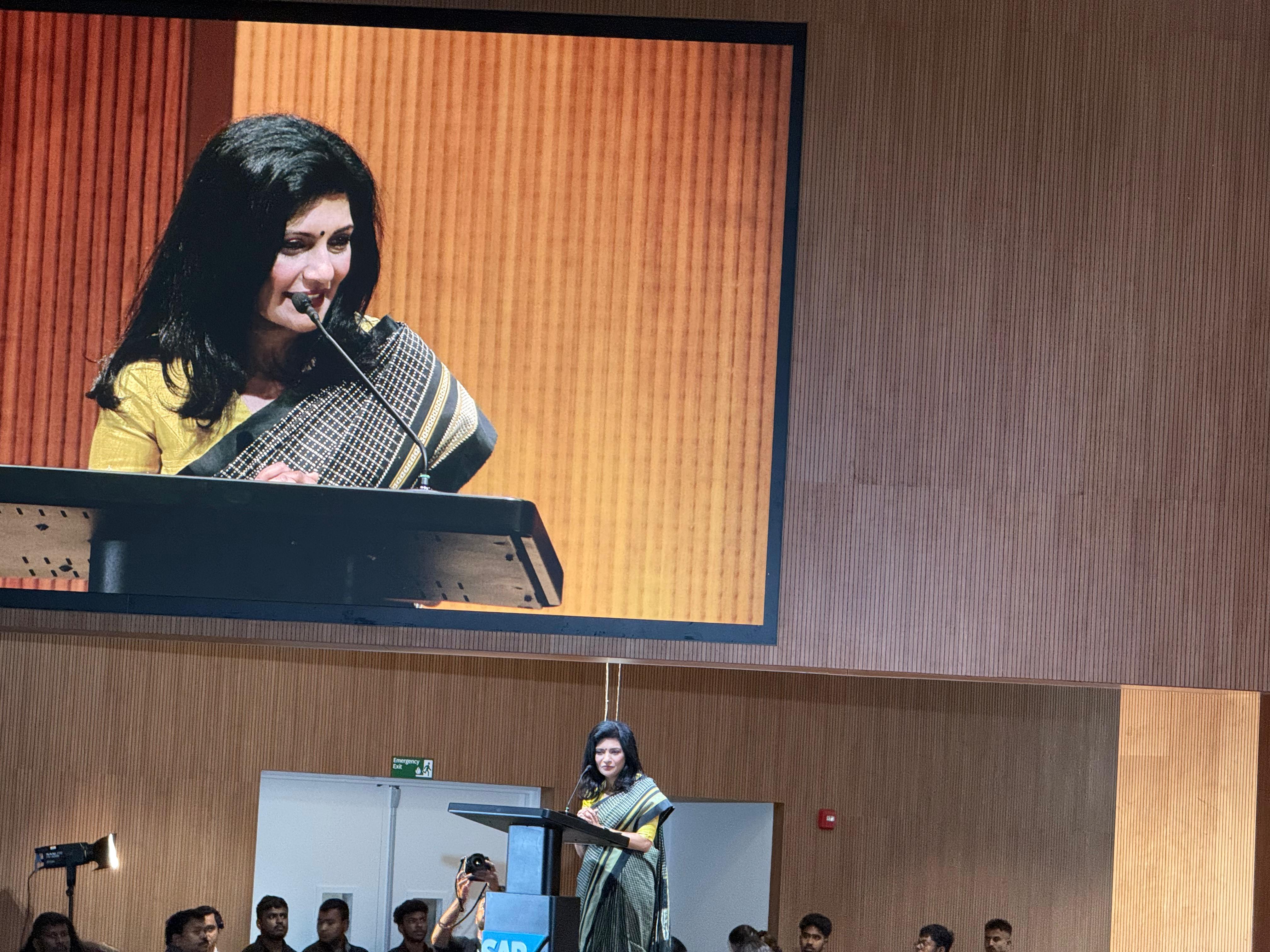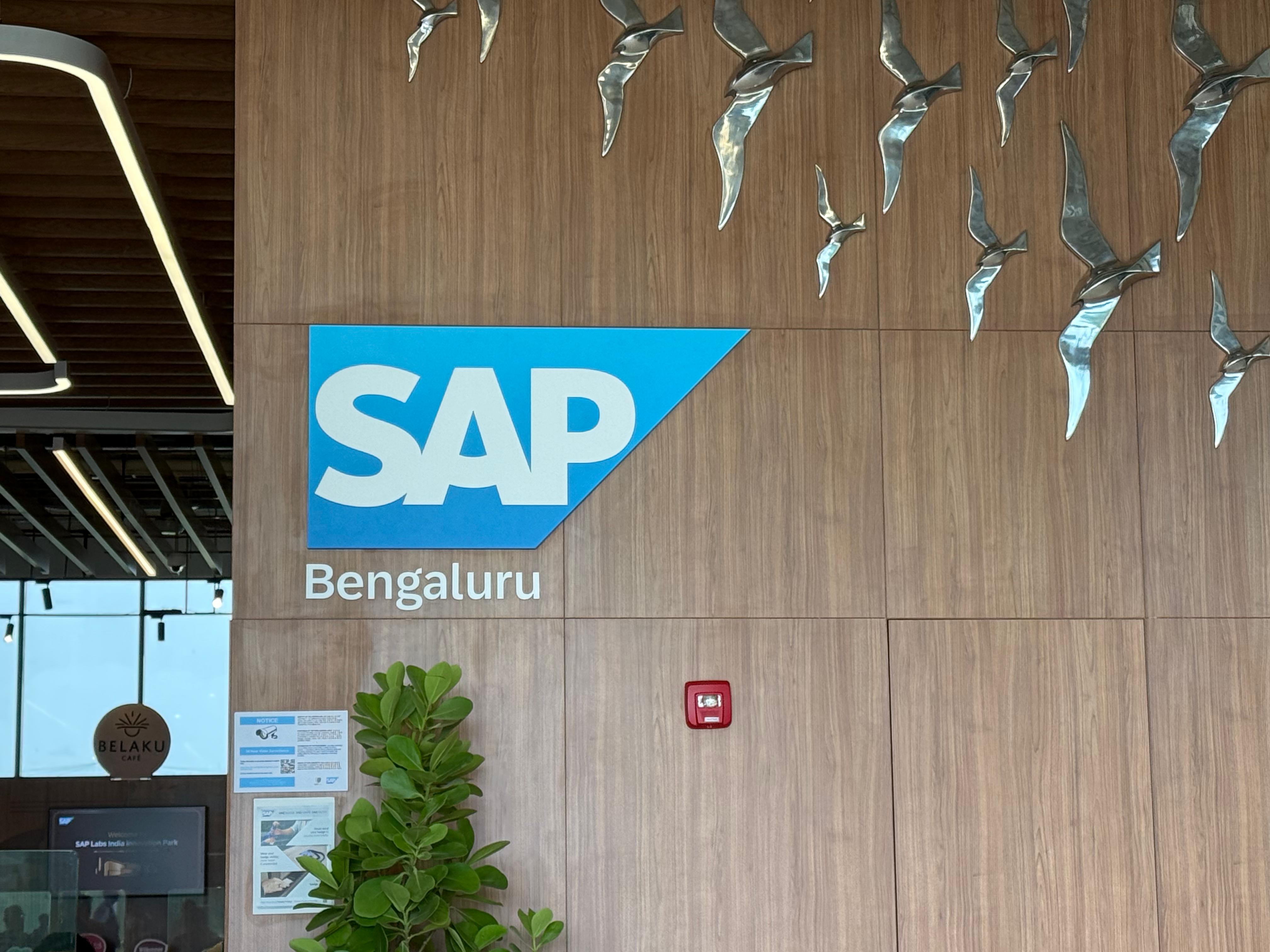SAP opened its new campus in Bengaluru on Tuesday, marking it as the company’s second-largest R&D hub outside its headquarters in Germany. The India Innovation Park, as it is called, is located in Devanahalli, in the northern part of the city, close to Bengaluru’s international airport.
The 41-acre campus will be developed in multiple phases. Currently, 27 acres have been built and are operational. Once the entire facility is complete, it will have the capacity to accommodate up to 14,000 people. At present, 3,200 SAP employees have already moved in, and an additional 4,500 employees are expected to relocate during the first phase.
The phase two of the campus has already been approved, and construction will begin soon, with a targeted completion by the Q2 or Q3 of 2028. The total cost of building the campus exceeds 194 million euros. This is SAP’s second campus in Bengaluru, with the first located in the Whitefield area of the city.
“The [Innovation Park] is designed to bring together our customers, partners, academia, startups, and communities. For us, this is the beating heart of co-innovation,” said Sindhu Gangadharan, MD of SAP Labs India and Head of Customer Innovation Services at SAP, while addressing hundreds of employees, partners, and government representatives at the inauguration.
 Sindhu Gangadharan, MD of SAP Labs India and Head of Customer Innovation Services at SAP. (Image: Anuj Bhatia/The Indian Express)
Sindhu Gangadharan, MD of SAP Labs India and Head of Customer Innovation Services at SAP. (Image: Anuj Bhatia/The Indian Express)
Software maker SAP is the latest major tech company to expand in India and increase its footprint in Bengaluru, now the world’s fourth-largest tech cluster after Silicon Valley, Boston, and London. Earlier this year, Google opened its new campus in Bengaluru, while Microsoft is setting up its largest R&D center in Noida, Uttar Pradesh.

More and more tech companies are expanding their presence in India by setting up either Research & Development centers or Global Capability Centers (GCCs). Once considered low-cost outsourcing hubs for global firms, these GCCs centers have evolved significantly over the past few years by supporting their parent organisations by handling a wide range of business functions and specialising in areas such as IT, automation, and manufacturing.
Bengaluru is home to 875 GCCs and accounts for 34 per cent of India’s GCC workforce. According to a report by IT industry body Nasscom and consulting firm Zinnov, released late last year, the market size of India’s GCC sector is expected to grow from $64.6 billion in fiscal 2024 to between $99 billion and $105 billion by 2030.
Story continues below this ad
In March, SAP became Europe’s most valuable listed company, overtaking French luxury group LVMH and Ozempic-maker Novo Nordisk in market capitalisation, after pivoting its business toward cloud computing and seizing opportunities in artificial intelligence.
 The 41-acre Bengaluru campus will be developed in multiple phases. (Image: Anuj Bhatia/The Indian Express)
The 41-acre Bengaluru campus will be developed in multiple phases. (Image: Anuj Bhatia/The Indian Express)
SAP generates the majority of its revenue from cloud services and is focused on leveraging AI to drive efficiencies for businesses. The company offers enterprise products across cloud solutions, expense management, supply chain management, and analytics.
SAP’s products are used by over 440,000 customers worldwide, including 98 of the world’s 100 largest companies. Taken altogether, its client base generates over 80 per cent of global commerce, according to the company.
SAP has over 17,000 employees spread across Bengaluru, Pune, Mumbai, Hyderabad, and Delhi in India. The 53-year-old German tech giant has over 40 per cent of its global R&D workforce in India.
© IE Online Media Services Pvt Ltd




